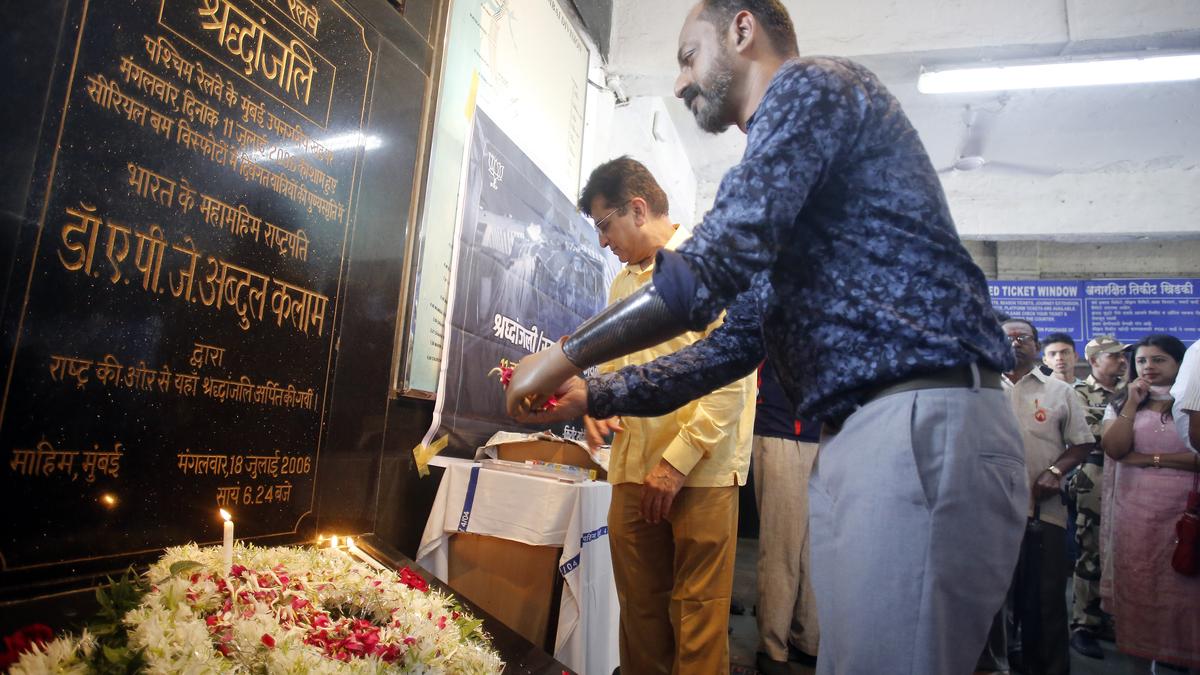
17 years after Mumbai train blasts still no prosecutor to hear appeals in HC
The Hindu
Mumbai: 17 yrs after train blasts, govt yet to appoint SPP for appeals/confirmation cases; HC summons Chief Secy to answer.
Even seventeen years after the train blasts in Mumbai, the Maharashtra government has not appointed a special public prosecutor (SPP) to hear the appeals and confirmation cases .
In 2015, the Maharashtra government moved the high court seeking confirmation of death sentence against four convicts. These convicts have also moved the high court in appeal challenging their convictions.
On Wednesday, a division bench of Justices Nitin Sambre and Rajesh Patil was informed that the State Government was yet to appoint a SPP to appear in the hearing and therefore sought an adjournment.
The court however remarked, “Is this the way you are treating these appeals? There is no seriousness in the government’s attitude to this issue. We will summon the Chief Secretary of the Home Department to answer us tomorrow morning.”
The court went on to say, “We do not want mid-level officers. We want someone from the government. If there is a failure on the aforesaid issue on the appointment of SPP or entrustment of the case to an APP by the day after tomorrow, we will call upon the principal secretary of the State Home and Justice Department.”
The bench directed the State to sort out the issue of appointing an SPP by September 8.
The bench said, “This Court is inclined to commence final hearings from Oct 5 on a day-to-day basis. Either it will be the first half or second half of the day, but we will hear it on a day-to-day basis.”

“Writing, in general, is a very solitary process,” says Yauvanika Chopra, Associate Director at The New India Foundation (NIF), which, earlier this year, announced the 12th edition of its NIF Book Fellowships for research and scholarship about Indian history after Independence. While authors, in general, are built for it, it can still get very lonely, says Chopra, pointing out that the fellowship’s community support is as valuable as the monetary benefits it offers. “There is a solid community of NIF fellows, trustees, language experts, jury members, all of whom are incredibly competent,” she says. “They really help make authors feel supported from manuscript to publication, so you never feel like you’re struggling through isolation.”

Several principals of government and private schools in Delhi on Tuesday said the Directorate of Education (DoE) circular from a day earlier, directing schools to conduct classes in ‘hybrid’ mode, had caused confusion regarding day-to-day operations as they did not know how many students would return to school from Wednesday and how would teachers instruct in two modes — online and in person — at once. The DoE circular on Monday had also stated that the option to “exercise online mode of education, wherever available, shall vest with the students and their guardians”. Several schoolteachers also expressed confusion regarding the DoE order. A government schoolteacher said he was unsure of how to cope with the resumption of physical classes, given that the order directing government offices to ensure that 50% of the employees work from home is still in place. On Monday, the Commission for Air Quality Management in the National Capital Region and Adjoining Areas (CAQM) had, on the orders of the Supreme Court, directed schools in Delhi-NCR to shift classes to the hybrid mode, following which the DoE had issued the circular. The court had urged the Centre’s pollution watchdog to consider restarting physical classes due to many students missing out on the mid-day meals and lacking the necessary means to attend classes online. The CAQM had, on November 20, asked schools in Delhi-NCR to shift to the online mode of teaching.









